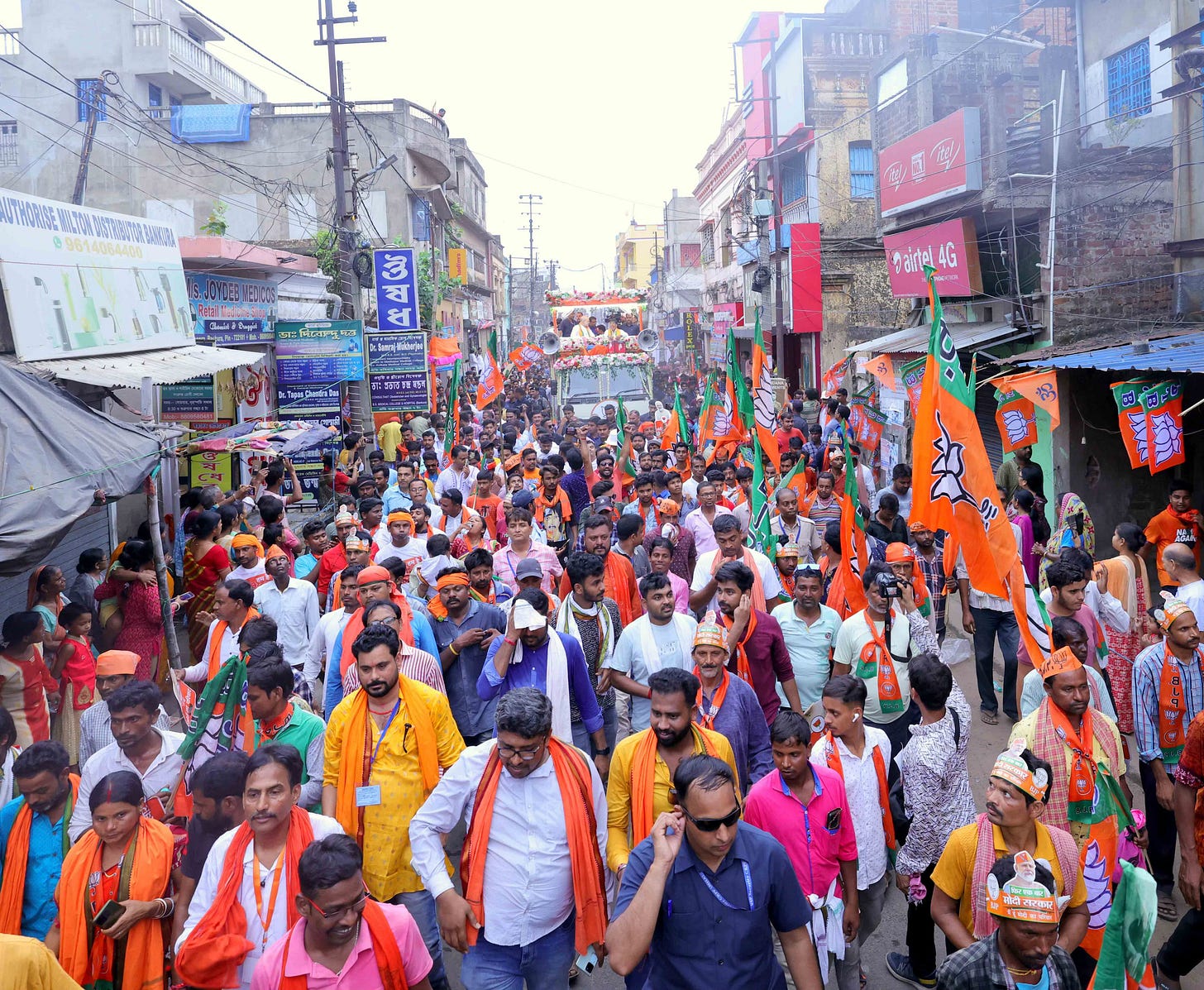India cuts Modi down to size
The BJP falls short in a shocker as caste trumps religion and voters punish the BJP for getting too confident. Indian democracy is the winner.

By K. Hrishikesh Rao
India’s election results were finally out this morning—an election where 642 million people cast their vote. Surprising everyone, the ruling Bharatiya Janata Party, or BJP, led by the charismatic and controversial Prime Minister Narendra Modi, failed to garner a majority. Modi had been expected to get a majority quite easily. Exit polls conducted on June 1, after the elections finally concluded, forecast that the Modi government would return with an overwhelming majority. The pollsters got it wrong.
India’s lower house of Parliament has 543 seats, with 272 needed for a majority. This time around, Modi’s party won only 240 seats, but it’s part of a coalition of several smaller regional parties, the National Democratic Alliance, and together, the alliance won 294 seats. So the BJP is still expected to be able to form a government with its coalition partners.
The opposition is led by the Indian National Congress (Congress), India’s oldest national party, which played a crucial role in the country’s independence movement against British rule. It won 99 seats. Together with another set of regional parties, Congress formed an alliance called the Indian National Developmental Inclusive Alliance, or INDIA, which won 232 seats.
Modi’s BJP won 303 seats in the 2019 election, and 282 seats in 2014. The National Democratic Alliance had 353 seats in 2019 and 336 in 2014. The Congress was nearly destroyed then, winning a mere 52 seats in 2019 and 44 in 2014.
The Bharatiya Janata Party is built on a Hindu religious foundation. It has drawn its strength, to a very great extent, from the controversial Rashtriya Swayamsevak Sangh, or RSS, a paramilitary volunteer organization that promotes hardline Hindu nationalism. The RSS has tremendous clout and inspires loyalty across India, especially in the North and the West.
In both those of those prior elections, the vote consolidated around Modi’s promise of economic development. In 2019, Modi’s government was aided considerably by the bold action it had taken just months before the election, when a suicide bomber from the Jaish-e-Mohammed (JeM), a terrorist group sponsored by Pakistan, rammed into a convoy of Indian soldiers in India-controlled Kashmir, killing several of them. The government sent Indian aircraft into Pakistani territory to bomb one of their camps. Modi garnered virtually all of the Hindu vote in both of those elections, something rare in caste-riven India.
There are four key reasons for Modi’s failure to win a majority this time around. One, Modi’s failed to consolidate the Hindu vote: He was at last undone by caste logic.
Keep reading with a 7-day free trial
Subscribe to The Cosmopolitan Globalist to keep reading this post and get 7 days of free access to the full post archives.



